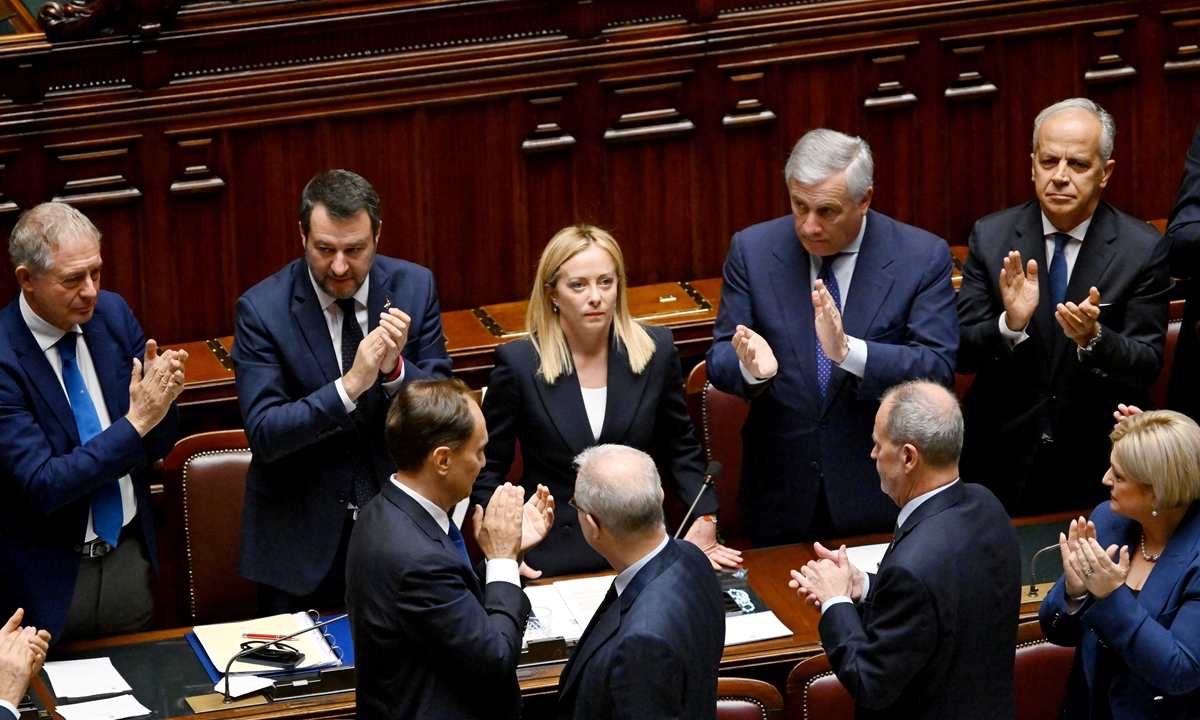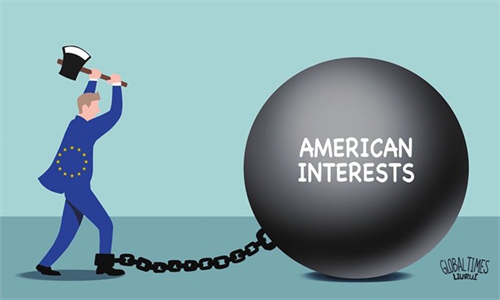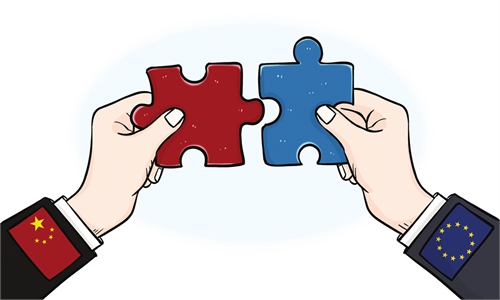Italy hesitates to renew BRI contract due to US pressure, ‘dropping out of program would only sacrifice Italy’s own interests for US’

Italy's new Prime Minister Giorgia Meloni (center) is applauded by her cabinet members after her first address to parliament ahead of a confidence vote in Rome on October 25, 2022. The new government faces some of the toughest challenges since World War II and the economy could sink into recession in 2023, Meloni said in her maiden speech to parliament. Photo: AFP
Good relations with China are possible even without being part of the Belt and Road Initiative (BRI), Italian Prime Minister Giorgia Meloni said in an interview published on Sunday amid speculation that the Italian government was considering withdrawing from the initiative.
Under the tense geopolitical environment between China and Europe due to the US' strategy of containing China, experts said it is understandable that Italy may have concerns and hesitation on the issue, but if Italy really does pull out, it would would damage the real interests of both countries, they warned.
Italy is the only G7 member that has signed the accession memorandum to the Silk Road, but it is not the European or Western country with the strongest economic relations and trade flows with China. This means that it is possible to have good relations with Beijing in important fields without them necessarily being part of an overall strategic plan, she was quoted as saying in the interview.
But it is too early to anticipate the outcome of Italy's decision on whether to remain part of the project, Meloni said, noting that "our assessment is very delicate and touches upon many interests."
The BRI is a China-proposed initiative that serves as a key platform for international cooperation. Italy in 2019 became the first and, so far, the only G7 nation to sign a four-year contract with the initiative, which is set to be renewed automatically for five more years in March 2024 if neither side withdraws by giving three months' notice.
Italy has been facing huge pressure since its participation in the BRI. That pressure has been growing in recent years given the intensifying relations between the US and China, which has led to ideology playing an increasing role in some European countries' policies toward China, Cui Heng, an assistant research fellow from the Center for Russian Studies of East China Normal University, told the Global Times on Monday.
Italy, as well as some other countries in Eastern Europe, usually holds a pragmatic policy in its cooperation with China. But the worsening geopolitical environment and the US' spread of the "China threat" theory has made it increasingly difficult for these countries to promote cooperation with China, Cui said.
Russia has participated in some of the BRI projects between China and Europe, and these projects have been impeded after the sanctions by the US-led West following the Ukraine crisis, putting Italy in a dilemma, experts noted.
On top of that, some US and European politicians have for years been keen to smear the BRI with conspiracy theories including "debt traps" and "neocolonialism," distorting the purpose of the BRI projects. Moreover, many European politicians have been carried away by the US-led anti-China atmosphere and seen BRI participation as a gauge of whether a government is drawing a line with China, according to experts.
But the win-win results of Italy's cooperation with the BRI are undeniable and it is also a fact that the cooperation between Chinese and Italian companies will continue whether the Italian government decides to renew the contract or not, experts said.
According to official data, China is Italy's largest trading partner in Asia and their bilateral trade reached a record high of $77.88 billion in 2022. It is in both China's and Italy's interests to continue deepening cooperation, and any move that undermines bilateral relations will directly affect the real interests of both countries, experts noted.



